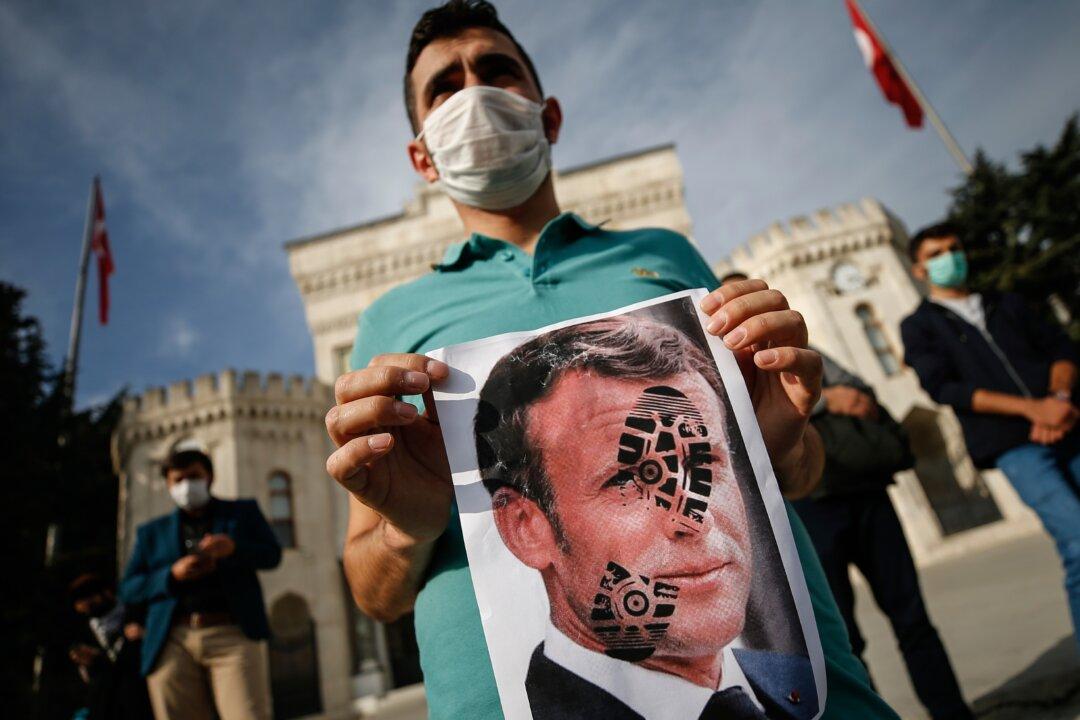As the dispute over depictions of Prophet Mohammad intensifies between France and Turkey, Britain has called on its NATO allies to stay united in defending the values of tolerance and free speech.
Turkey has reacted angrily to French President Emmanuel Macron’s defense of the right to publish and display caricatures of Prophet Mohammad, following the beheading of a French history teacher by an 18-year-old radical Islamist on Oct. 16.





